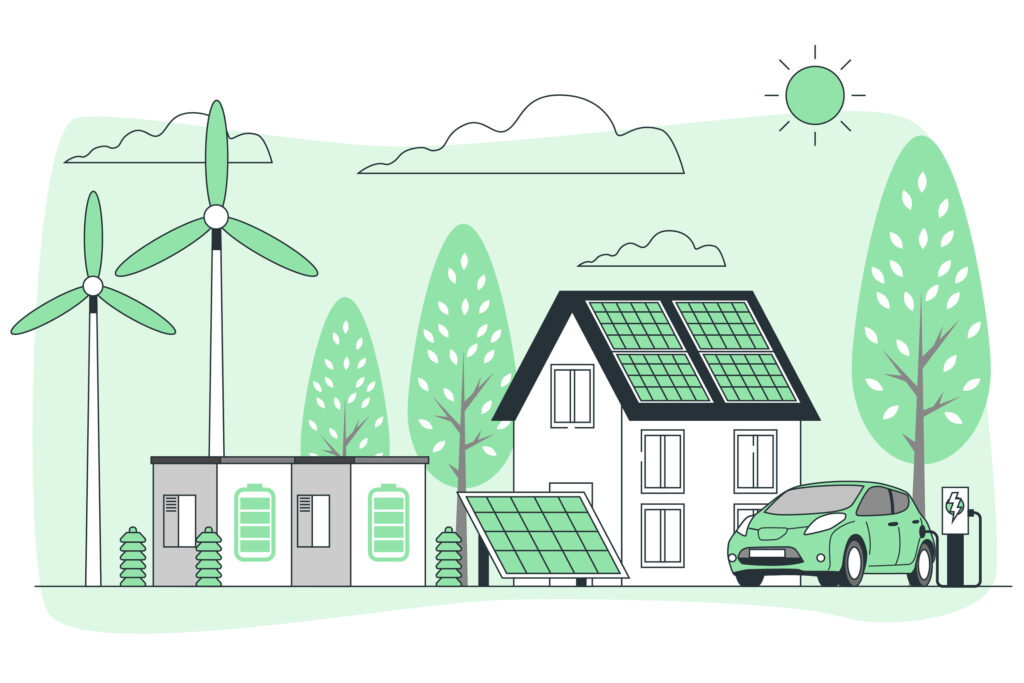Solar Power:
- Clean and Renewable: Solar power is a clean and renewable energy source, harnessing energy from the sun without producing greenhouse gas emissions or air pollutants.
- Reduced Electricity Bills: Solar panels can significantly reduce electricity bills by generating electricity on-site, allowing homeowners and businesses to rely less on grid power.
- Low Operating Costs: Once installed, solar panels have low operating and maintenance costs. They require minimal maintenance and have a long lifespan.
- Versatility: Solar panels can be installed on rooftops, in open fields, or as part of solar farms. They are versatile and can be integrated into both urban and rural environments.
- Sustainable Development: Solar power contributes to sustainable development by reducing dependence on finite fossil fuels, mitigating climate change, and promoting energy independence.
Air Source Heat Pumps (ASHP):
- Efficiency: ASHPs are highly efficient in converting ambient air into heating or cooling. They can provide a cost-effective solution for both residential and commercial spaces.
- Year-Round Functionality: ASHPs can operate throughout the year, providing both heating in the winter and cooling in the summer. This dual functionality makes them versatile and suitable for various climates.
- Reduced Carbon Footprint: ASHPs produce fewer greenhouse gas emissions compared to traditional heating systems, contributing to environmental sustainability and climate change mitigation.
- Lower Operating Costs: ASHPs can result in lower operating costs compared to conventional heating systems, as they move heat rather than generate it. This can lead to energy savings over time.
- Incentives and Rebates: Many regions offer incentives and rebates for the installation of air source heat pumps, making them more financially attractive for homeowners and businesses.
Other Renewable Energy Sources:
While solar power and air source heat pumps offer significant advantages, it’s important to briefly describe other renewable energy sources:
- Wind Power: Harnessing the kinetic energy of the wind to generate electricity, with onshore and offshore wind farms as common installations.
- Hydropower: Using flowing or falling water to generate electricity through dams, run-of-river systems, and tidal power.
- Biomass: Utilizing organic materials for heating, electricity generation, and biofuel production.
- Geothermal Energy: Tapping into the Earth’s internal heat for electricity generation or direct heating, using geothermal power plants or heat pumps.
Each renewable energy source has its unique benefits, and the choice depends on factors such as location, climate, and energy requirements.
Get in touch with us today to start your renewable journey by filling out a quote request or giving us a call on 01942 669 601.

